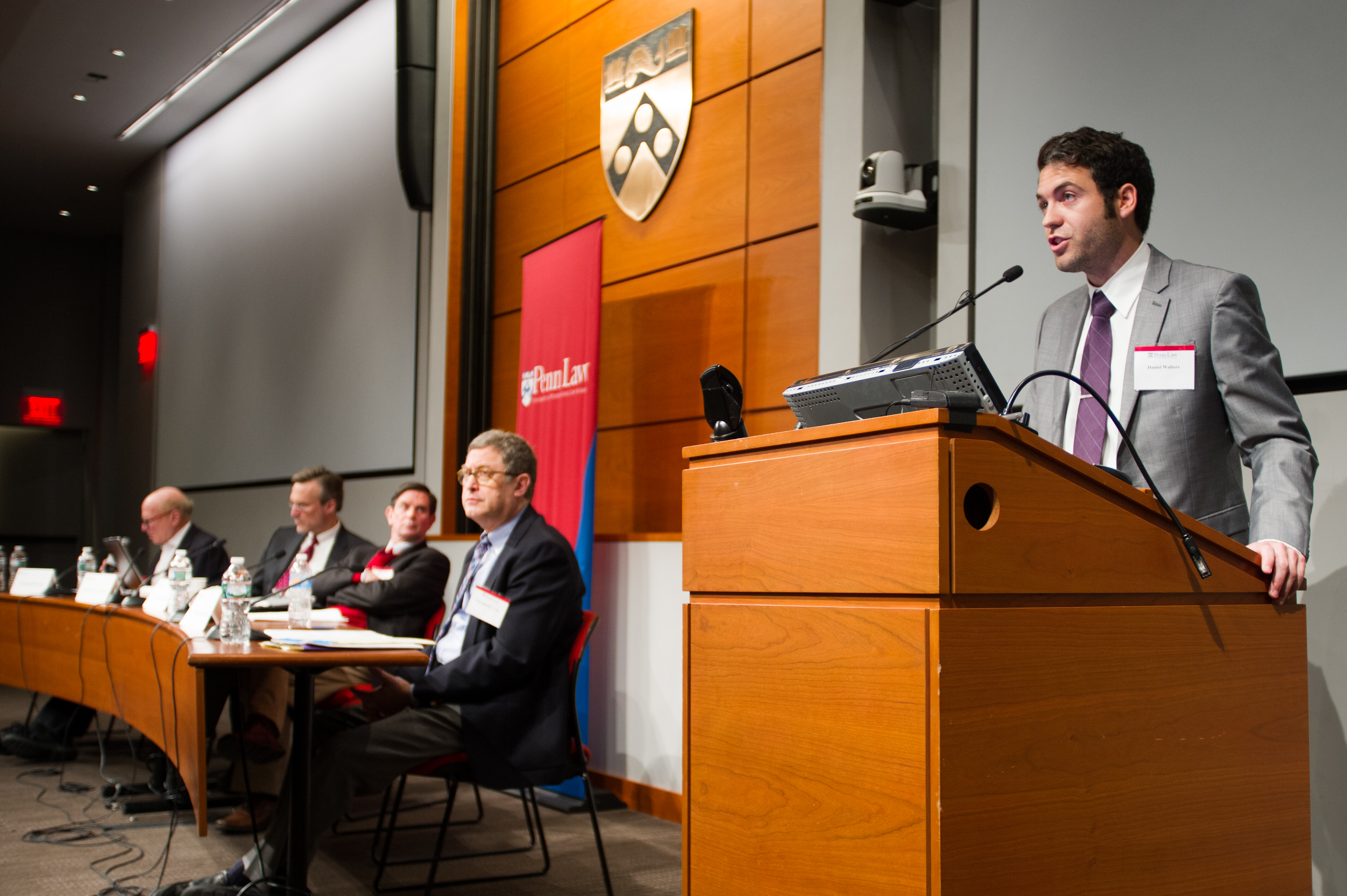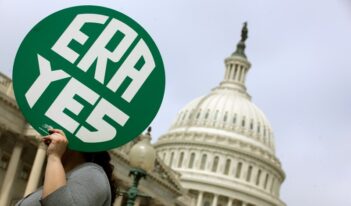
Dan Walters argues that the Administrative Procedure Act provides the courts with the best framework for reviewing presidential inaction.
The U.S. Constitution dictates that presidents should “take care” to see that laws are “faithfully executed,” but governmental decisions not to enforce the law are commonplace. A recent example arose after Congress passed the Affordable Care Act in 2010. The law required businesses with more than 50 employees to provide health insurance to their employees by 2014, a provision known as the employer mandate. In 2013, however, the Obama Administration delayed the employer mandate until January 2015, and then the following year the Obama Administration announced it would not be enforcing the employer mandate until 2016.
In a presentation earlier this fall at the University of Pennsylvania Law Review’s annual Symposium, Dan Walters recognized the potential constitutional problems of presidential inaction in light of the “take care” clause, but he argued that the Administrative Procedure Act (APA) provides the more useful framework for judicial review of non-enforcement decisions.
Walters noted that if courts were to review the constitutionality of presidential inaction related to enforcement, they would need to adopt a highly nuanced standard because the degree of enforcement needed to be “faithful” will hardly ever be clear-cut, and thus a hard-line rule would inevitably be overinclusive, underinclusive, or both. Walters suggested that defining and applying a nuanced constitutional standard would prove unworkable because the sheer volume of potential non-enforcement cases would overwhelm the courts if they had to delve deep into the merits in most cases.
He maintained, however, that the APA’s arbitrariness standard of review for agency inaction provides a better framework for the review of enforcement inaction. Although the courts’ review of agency inaction is somewhat limited by a presumption in favor of any agency’s “discretionary decision,” he argued that review is more readily available and feasible than many scholars acknowledge. Yet it also contains enough limitations and inherent filters that it can protect courts as they go about determining whether agencies’ decisions not to enforce are reasoned and supported by the statute.
According to Walters, the complexity and uncertainty of APA review of agency inaction may be its chief virtue. Walters explained that these characteristics allow for highly nuanced review of a smaller subset of actions, which ensures the courts can review some of the more extreme instances of deliberate non-enforcement while preventing the courts from being overrun with too many claims to resolve.
Walters addressed three main sources of complexity and uncertainty in APA review, each of which gives courts the protection they need against strains on their judicial capacity. First, he argued that jurisdictional safety valves, such as the requirement for a “final” agency action, allow the courts to “pick and choose their battles,” enabling the courts to focus on only those cases that are most important.
Second, Walters maintained that the distinction between agency action and inaction is artificial, again allowing courts to be selective in what cases to take.
Finally, courts apply varying degrees of deference in reviewing agency actions. Walters argued that the stringency of review is very flexible and permits the courts to reach context-appropriate decisions.
Walters concluded by discussing how several recent cases – specifically, Massachusetts v. EPA, Mach Mining v. EEOC, and Texas v. United States – demonstrate that courts have successfully used APA review of agency inaction to constrain presidential inaction and can continue to do so going forward.
Following Walters’ presentation, additional commentary on the application of the APA to exercises of executive enforcement discretion was provided by Ronald Levin, the William R. Orthwein Distinguished Professor of Law at the Washington University School of Law. The panel on which both Walters and Levin spoke was moderated by Rogers Smith, the Christopher H. Browne Distinguished Professor of Political Science and Associate Dean for Social Sciences at the University of Pennsylvania.
A former Regulation Fellow with the Penn Program on Regulation (PPR), Walters was the 2015 Symposium Scholar. The Symposium Scholar is selected by the Law Review’s editors through a competitive call for proposals to contribute an article to the University of Pennsylvania Law Review’s forthcoming Symposium issue.
This essay is part of The Regulatory Review’s ten-part series, The Bounds of Executive Discretion in the Regulatory State.
The recent Symposium was co-sponsored by the Penn Program on Regulation (PPR) and organized by Penn Law professors Cary Coglianese, director of PPR, and Christopher Yoo.



